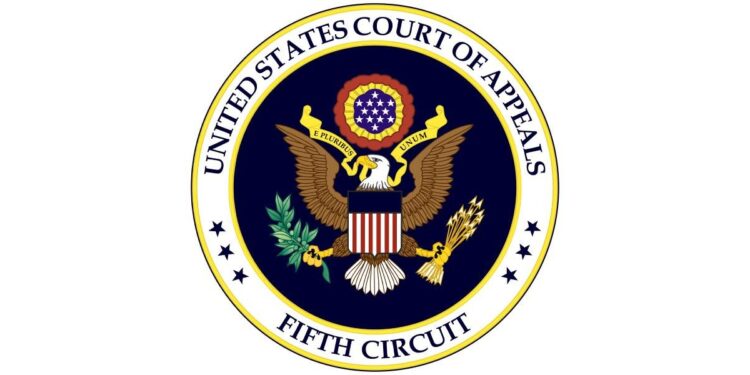When can a court treat the Department of Justice and the Securities and Exchange Commission as the same “party” for purposes of a particular hearsay exception? This question was recently examined by the U.S. Court of Appeals for the Fifth Circuit in United States v. Baker, No. 17-51034, 2019 WL 1873306, at *2 (5th Cir. Apr. 26, 2019). In that case, the Court analyzed the applicability of Federal Rule of Evidence 804(b)(1), the so-called “former testimony” hearsay exception. The Court held that the DOJ and SEC could not be treated as the same party and upheld the district court’s exclusion of the testimony in question. But as the analysis below makes clear, the Fifth Circuit appeared to leave the door open to a different result in a later case.
A. Federal Rule of Evidence 804(b)(1)
The rule against hearsay generally prevents a party from taking the testimony of a witness from an earlier proceeding (e.g., an earlier hearing, deposition, etc.) and using it as a substitute for that same witness’s trial testimony. The idea, of course, is that we want the factfinder to see the witness “live,” assessing his or her in-court demeanor for themselves.
But in some cases, a court will allow such “substituted” testimony. Under the former testimony hearsay exception, a party may offer a witness’s former testimony during a trial if three elements are satisfied. First, the “unavailability” element. The witness must be currently unavailable to testify at the trial. Second, the “unity of adverse party” element. If the case is a criminal case, the party against whom the former testimony is offered must have also been a party to the earlier proceeding (note: in a civil case, the rule is more relaxed, as the party against whom the former testimony is offered must have been either a party to the earlier proceeding or had a predecessor in interest that was a party to the earlier proceeding). Third, and finally, what could be labeled the “fairness” element. At the earlier proceeding, the adverse party must have had an “opportunity and similar motive to develop” the witness’s testimony. This makes sense, as the adverse party will not be getting a chance to develop the testimony in the instant trial. The exception reads, in its entirety:
(1) Former Testimony. Testimony that:
(A) was given as a witness at a trial, hearing, or lawful deposition, whether given during the current proceeding or a different one; and
(B) is now offered against a party who had—or, in a civil case, whose predecessor in interest had—an opportunity and similar motive to develop it by direct, cross-, or redirect examination
Fed. R. Evid. 804(b)(1).
B. Fifth Circuit Holds that DOJ and SEC are not the Same Party
In Baker, a criminal case, the Fifth Circuit considered whether the DOJ and the SEC could be considered the same “party” for purposes of the former testimony hearsay exception.
The DOJ had charged Baker, a former CEO, with wire fraud, securities fraud, making false statements to the SEC, and conspiracy to commit wire fraud and securities fraud. The charges arose out of an alleged “channel stuffing” scheme by which Baker’s company had puffed up earnings reports by entering into phony sales transactions with a co-conspirator. As part of his defense, Baker wanted to offer the testimony of Brad Simmons, his company’s former controller. Simmons, however, refused to testify at Baker’s trial, invoking his Fifth Amendment right against self-incrimination. But the SEC had deposed Simmons as part of its civil investigation of Baker’s company. Citing Rule 804(b)(1), Baker attempted to use Simmons’s deposition testimony—which obviously was helpful to Baker—as a substitute for trial testimony. The DOJ objected, arguing that it was not the same “party” as the SEC. Baker countered that, because both the SEC and DOJ were “Executive Branch agencies” and had coordinated in this particular case, the Court should consider them the same party.
The Fifth Circuit agreed with the DOJ, upholding the district court’s exclusion of Simmons’s testimony. The Court’s analysis hinged on both the legal relationship between the two agencies, and the specifics of the case before it.
With respect to the legal relationship, the Court noted that, unlike some federal agencies, the SEC (1) was not statutorily required to report to the DOJ and (2) did not need to cooperate with the DOJ to “enforce the same statutory scheme.” In making this point, the Court contrasted the case before it with United States v. Sklena, 692 F.3d 725, 730–32 (7th Cir. 2012). In that case, the Seventh Circuit had held that the U.S. Commodities Future Trading Commission (“CFTC”) and the DOJ was the same party for purposes of Rule 804(b)(1), reasoning that (1) the CFTC was statutorily required to report to the DOJ and (2) both agencies “play closely coordinated roles on behalf of the United States in the overall enforcement of a single statutory scheme.” Sklena, 692 F.3d at 732.
With respect to the specifics of the case, the Court noted that the coordination between the DOJ and SEC lawyers had not been “extensive enough.” In reaching this conclusion, the Court observed that the telephone calls and meetings between the two agencies that Baker had pointed to actually post-dated Simmons’s deposition.
Although the Fifth Circuit’s analysis could have ended there, it went on to conclude that Baker had also failed to meet the third element of Rule 804(b)(1). The Court reasoned, “[e]ven if the SEC and the DOJ were deemed to be the same party, they did not share a sufficiently similar motive in developing Simmons’s testimony.” Baker, 2019 WL 1873306, at *9.
C. Takeaways
In closing, although the DOJ prevailed on the Rule 804(b)(1) issue in Baker, the Fifth Circuit stopped short of articulating a per se rule that the SEC and the DOJ are the same party for purposes of the former testimony hearsay exception. And the fact that the Court analyzed the case-specific coordination between the agencies appears to implicitly rule out such a per se holding. In my view, the Fifth Circuit’s analysis is questionable. Whether the DOJ and SEC should be considered the same party should depend on the legal relationship of the agencies, not the particular conduct of their employees in a given case. And having the “same party” determination hinge on the specific facts of a case will result in both uncertainty and potentially arbitrary outcomes. Still, both white collar defense lawyers and federal prosecutors need to be aware of Baker and its apparent limitations.
If you want to read the entire opinion of the Fifth Circuit in Baker, you can click on the link below.











